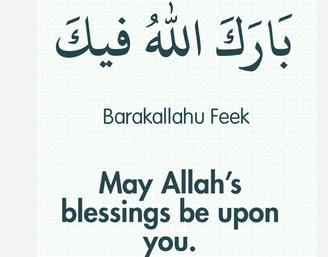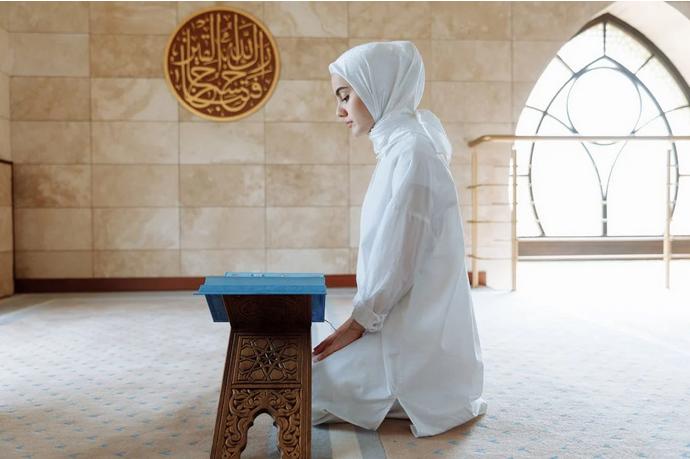How The Quran Was revealed
The revelation of the Qur’an to Prophet Muhammad (PBUH) is a pivotal event in Islamic history, marking the commencement of his prophethood and the beginning of a new era in human guidance. This event involved a profound interaction between the Prophet Muhammad (PBUH) and the angel Jibril (Gabriel), through which the first verses of the Qur’an were revealed. This momentous occasion took place over a period of 23 years, but the first revelation is particularly significant in understanding the relationship between the Prophet and Jibril and the divine purpose of the Qur’an.
The Context: The Pre-Revelation Period
Before the revelation began, Prophet Muhammad (PBUH) lived in Mecca, where he was born and raised. His early life, including the death of his father before he was born, the death of his mother when he was a child, and the guardianship of his grandfather and then his uncle, shaped his character. As he grew, he earned the title of Al-Amin (the Trustworthy) due to his honesty and integrity. He married Khadijah bint Khuwaylid, a wealthy widow, who was his first supporter and confidante.
At the age of 40, Muhammad (PBUH) began to seek solitude in the cave of Hira, located on the mountain of Jabal al-Noor, about three miles from Mecca. The Prophet would often retreat there to meditate and reflect on the state of his society, which he saw as steeped in idolatry, injustice, and moral decay. He was deeply troubled by the pagan practices of his people, their rejection of monotheism, and their social inequities.
The First Revelation: The Encounter with Jibril
One night, while Prophet Muhammad (PBUH) was meditating in the cave of Hira during the month of Ramadan, the first revelation occurred. This was not a sudden, instantaneous experience, but a profound and overwhelming one. According to Hadith literature, the event unfolded as follows:
The Initial Encounter
The angel Jibril (Gabriel), in his divine form, appeared to Prophet Muhammad (PBUH). Jibril’s appearance was both awe-inspiring and terrifying. The Prophet described him as a being of immense size, whose presence filled the entire horizon. The angel approached the Prophet and commanded him to read (or recite), saying:
“Iqra’ bismi rabbika allathee khalaq”
“Read in the name of your Lord who created.”
(Surah Al-Alaq, 96:1)
These words, though simple in form, held immense significance. The word Iqra’ can mean both “read” and “recite”—a call to knowledge, learning, and divine revelation. The first verse revealed was not an admonition or a command to become a prophet, but a call to engage with knowledge in the name of God, the Creator.
The Command to Recite
Jibril then repeated the command, not once but three times, each time increasing the urgency and intensity of the experience:
“Iqra’ wa rabbuka al-akram”
“Read, and your Lord is the Most Generous.”
(Surah Al-Alaq, 96:3)
Jibril, after each command, would embrace the Prophet tightly, squeezing him until the Prophet (PBUH) felt overwhelmed. This squeezing was not violent but was meant to instill in him the strength to carry the weight of the message he was about to receive. The Prophet (PBUH) later recounted that he felt as though he was about to be crushed.
At this moment, the Prophet was not only physically affected but also emotionally and spiritually overwhelmed. He was frightened and confused, unsure of what was happening. Jibril, seeing his distress, released him, and the words continued:
“Iqra’ wa rabbuka al-akram, allathee ‘allama bilqalam”
“Read, and your Lord is the Most Generous, who taught by the pen.”
(Surah Al-Alaq, 96:4)
These words marked the beginning of the revelation, an event that was to continue for the next 23 years. The first verses revealed, although brief, pointed to several central themes: the importance of knowledge, the Creator’s generosity, the power of the written word, and the means by which God imparts knowledge to humanity.
The Prophet’s Reaction
The overwhelming experience of the first revelation left the Prophet Muhammad (PBUH) in a state of shock. He fled the cave, his heart racing, his mind in turmoil. The Prophet returned home to Khadijah, trembling, fearful, and unsure of the meaning of what had just happened. He said to her:
“I have feared for myself.”
Khadijah, a wise and supportive partner, responded with calm reassurance. She comforted him and took him to her cousin, Waraka ibn Nawfal, a Christian scholar who was familiar with the scriptures. After listening to the Prophet’s account of the event, Waraka confirmed that Muhammad (PBUH) had encountered the same angel who had come to Moses (Musa) and Jesus (Isa). He prophesied that Muhammad (PBUH) would become the final prophet and would face great trials in his mission.
The Subsequent Revelations
Following the first encounter, the Prophet Muhammad (PBUH) continued to receive revelations from Jibril over the next 23 years. These revelations were not limited to a single event or moment but occurred at various times and under different circumstances. They were revealed in both Mecca and Medina, reflecting the changing social, political, and spiritual needs of the time.
The Gradual Nature of Revelation
The Qur’an was revealed gradually, with each verse addressing specific circumstances, events, or moral questions. This gradual nature of the revelation allowed the Prophet and the early Muslim community to absorb and implement the divine guidance step by step. The revelation came in different forms: some were brief and direct, while others were longer and more detailed.
The revelations also came during moments of hardship, struggle, and conflict. When the Prophet (PBUH) faced opposition from the Quraysh, the powerful tribe in Mecca, verses would be revealed to offer comfort, guidance, and reassurance. When his followers were persecuted, the Qur’an would provide hope and encouragement. The Qur’an addressed not only the theological and moral teachings but also legal, social, and political issues that arose in the context of the early Muslim community.
The Role of Jibril
Jibril’s role in the process of revelation was not just that of a messenger; he acted as a teacher and guide. He would bring the revelation to the Prophet Muhammad (PBUH) and explain it to him. Sometimes, the Prophet would recite the words aloud, and Jibril would listen to ensure that they were pronounced correctly. At other times, Jibril would explain the meanings of the verses, clarifying any doubts the Prophet (PBUH) may have had.
Jibril’s role extended beyond the revelation itself. He played an essential part in the Prophet’s life, offering guidance and comfort during times of difficulty. For instance, when the Prophet (PBUH) was distressed or in a state of confusion, Jibril would often appear to him to reassure him of God’s presence and support.
The Final Revelation
The last revelation occurred just before the death of Prophet Muhammad (PBUH). This final revelation is preserved in Surah Al-Ma’idah, where God declares:
“This day I have perfected for you your religion and completed My favor upon you and have approved for you Islam as religion.”
(Surah Al-Ma’idah, 5:3)
With this verse, the process of revelation came to an end. The message of Islam was now complete, and the Qur’an, as the final guidance for humanity, had been fully revealed.
The Significance of the Revelation
The event of the first revelation and the subsequent revelations are central to the Islamic faith. The Qur’an is not seen merely as a book of guidance, but as the literal word of God, revealed through the angel Jibril to the Prophet Muhammad (PBUH). Muslims believe that the Qur’an is the final and unaltered message of God to humanity, and it is a comprehensive guide for every aspect of life.
The Qur’an addresses the nature of God, the purpose of human existence, the moral and ethical obligations of individuals, and the social and political systems that should guide a just society. It provides laws, spiritual guidance, and stories of past prophets to help believers understand their relationship with God and the world around them.
Conclusion
The revelation of the Qur’an, initiated by the encounter between Prophet Muhammad (PBUH) and the angel Jibril, marked the beginning of a transformative journey for the Prophet and his followers. It not only changed the course of history but also shaped the spiritual and moral framework of humanity. The story of the first revelation serves as a powerful reminder of the importance of divine knowledge, the role of the Prophet as a recipient of that knowledge, and the ongoing guidance that the Qur’an offers to Muslims around the world. Through the revelation of the Qur’an, the relationship between the Creator and humanity was redefined, offering a path of righteousness, justice, and peace for those who choose to follow it.


